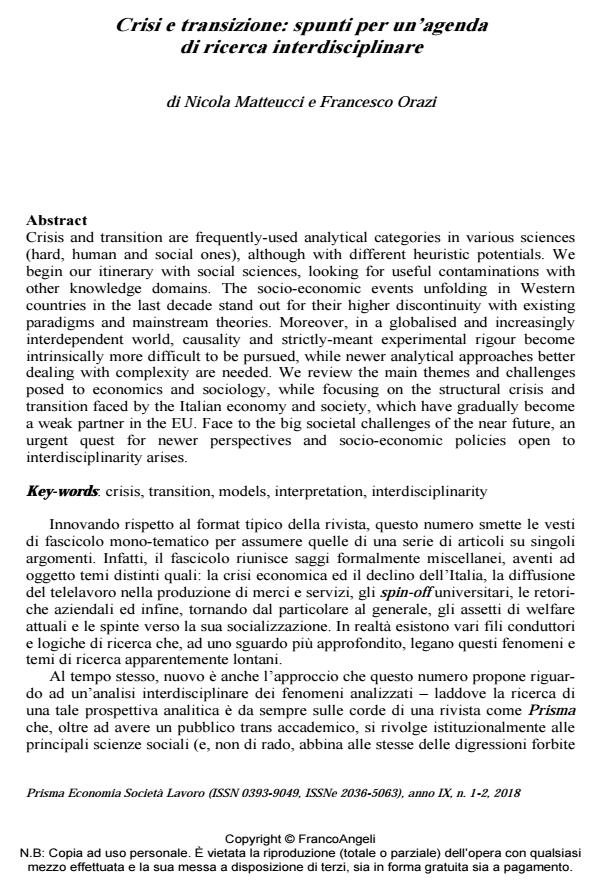Crisi e transizione: spunti per un’agenda di ricerca interdisciplinare
Journal title PRISMA Economia - Società - Lavoro
Author/s Nicola Matteucci, Francesco Orazi
Publishing Year 2019 Issue 2018/1-2
Language Italian Pages 13 P. 5-17 File size 197 KB
DOI 10.3280/PRI2018-001001
DOI is like a bar code for intellectual property: to have more infomation
click here
Below, you can see the article first page
If you want to buy this article in PDF format, you can do it, following the instructions to buy download credits

FrancoAngeli is member of Publishers International Linking Association, Inc (PILA), a not-for-profit association which run the CrossRef service enabling links to and from online scholarly content.
Crisis and transition are frequently-used analytical categories in various sciences (hard, human and social ones), although with different heuristic potentials. We begin our itinerary with social sciences, looking for useful contaminations with other knowledge domains. The socio-economic events unfolding in Western countries in the last decade stand out for their higher discontinuity with existing paradigms and mainstream theories. Moreover, in a globalised and increasingly interdependent world, causality and strictly-meant experimental rigour become intrinsically more difficult to be pursued, while newer analytical approaches better dealing with complexity are needed. We review the main themes and challenges posed to economics and sociology, while focusing on the structural crisis and transition faced by the Italian economy and society, which have gradually become a weak partner in the EU. Face to the big societal challenges of the near future, an urgent quest for newer perspectives and socio-economic policies open to interdisciplinarity arises.
Keywords: Crisis, transition, models, interpretation, interdisciplinarity
- Editoriale Marco Giovagnoli, in PRISMA Economia - Società - Lavoro 2/2022 pp.5
DOI: 10.3280/PRI2020-002001
Nicola Matteucci, Francesco Orazi, Crisi e transizione: spunti per un’agenda di ricerca interdisciplinare in "PRISMA Economia - Società - Lavoro" 1-2/2018, pp 5-17, DOI: 10.3280/PRI2018-001001